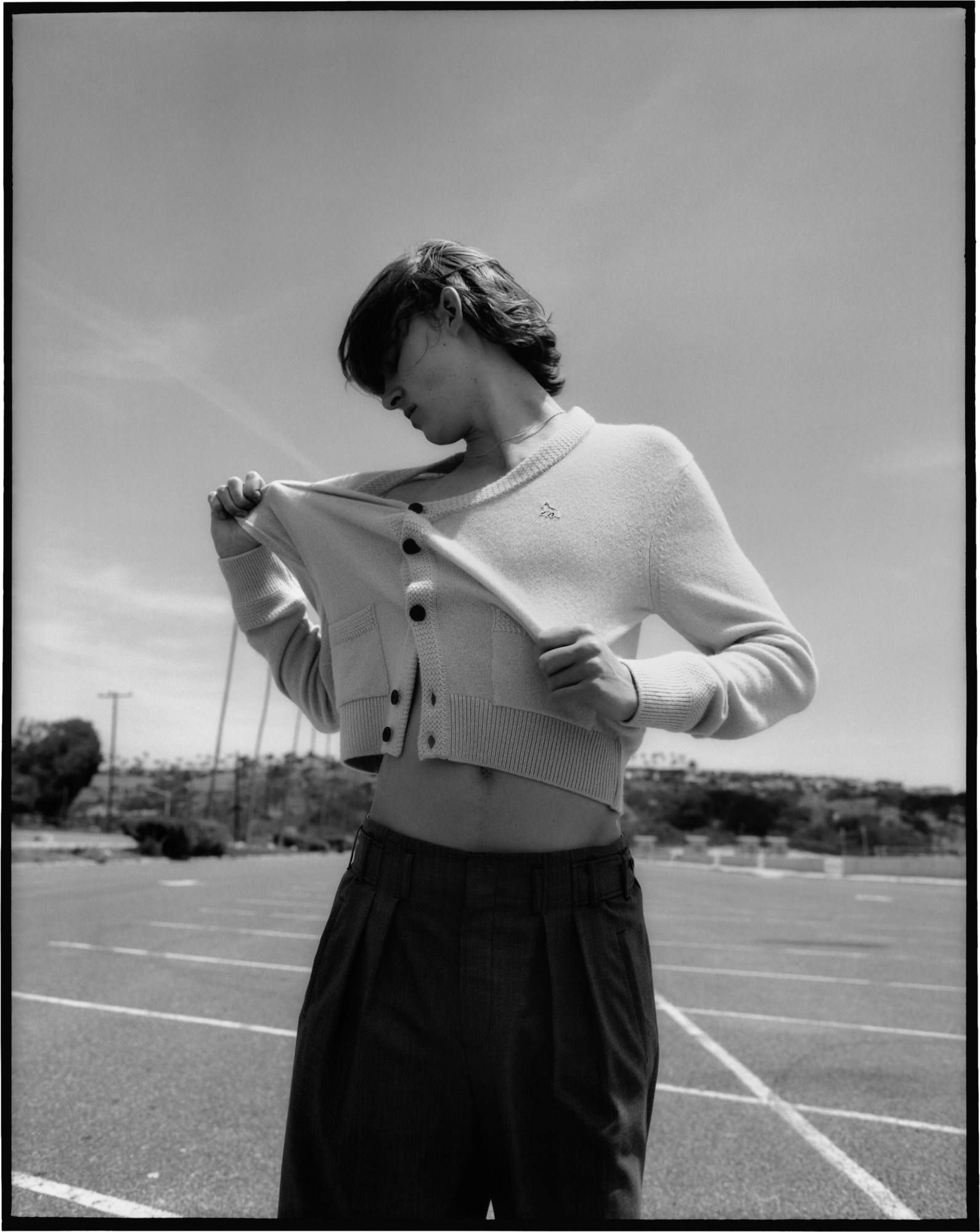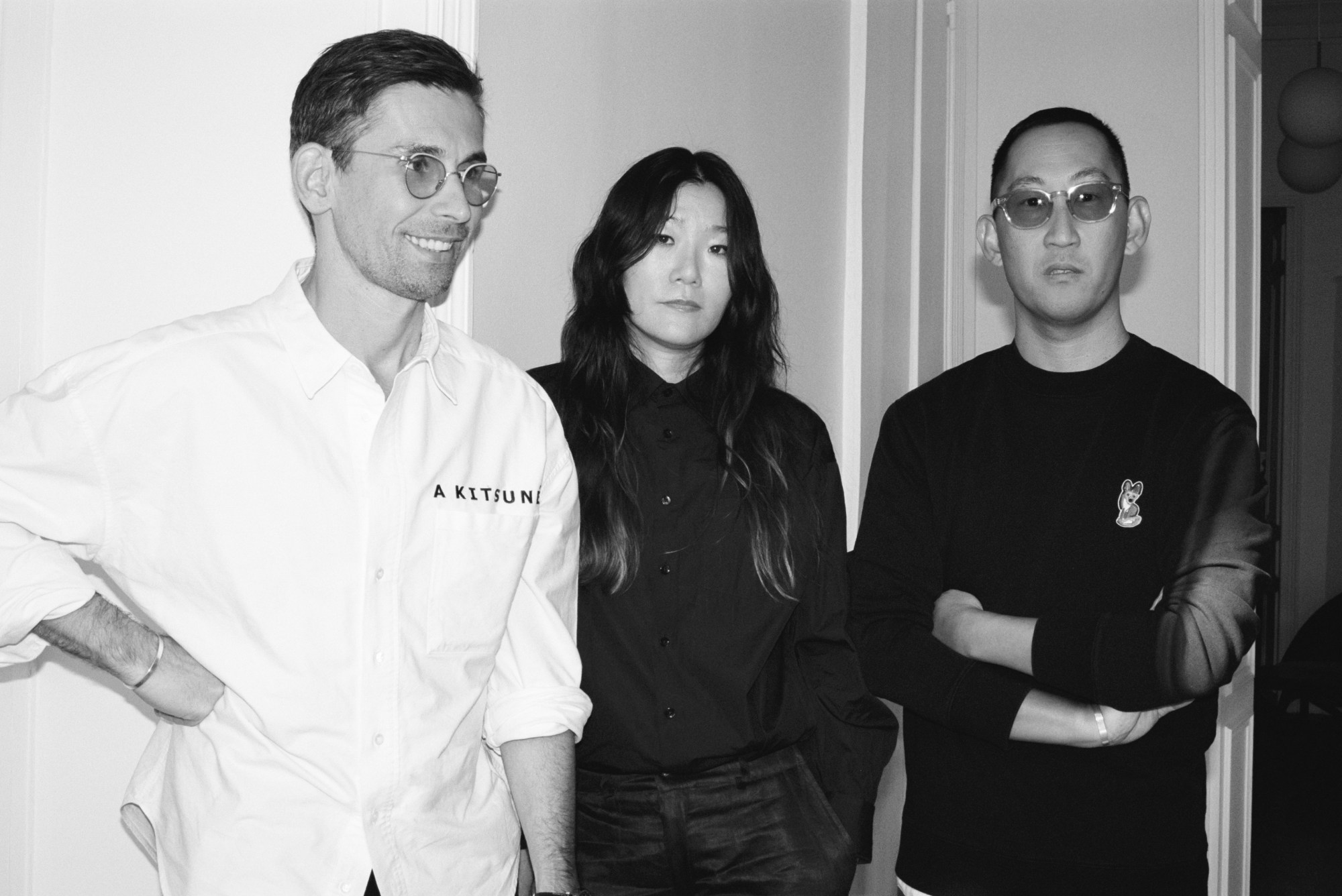Yuni Ahn doesn’t particularly enjoy interviews. Sat in a quiet corner of Nobu Shoreditch’s garden terrace on a sunny Monday afternoon, the elusive designer is quick to explain they’re not really her forte. Taking the helm of Maison Kitsuné as creative director at the end of last year — previously working for the likes of Stella McCartney, Miu Miu and Celine (with an é) — until now she’s remained largely behind the scenes, letting her work at these revered, female-led fashion houses speak for itself. But, with a bold, invigorated debut Maison Kitsuné collection and accompanying Sam Rock-shot campaign making waves for the fashion and record label, many in the industry are keen to know more.
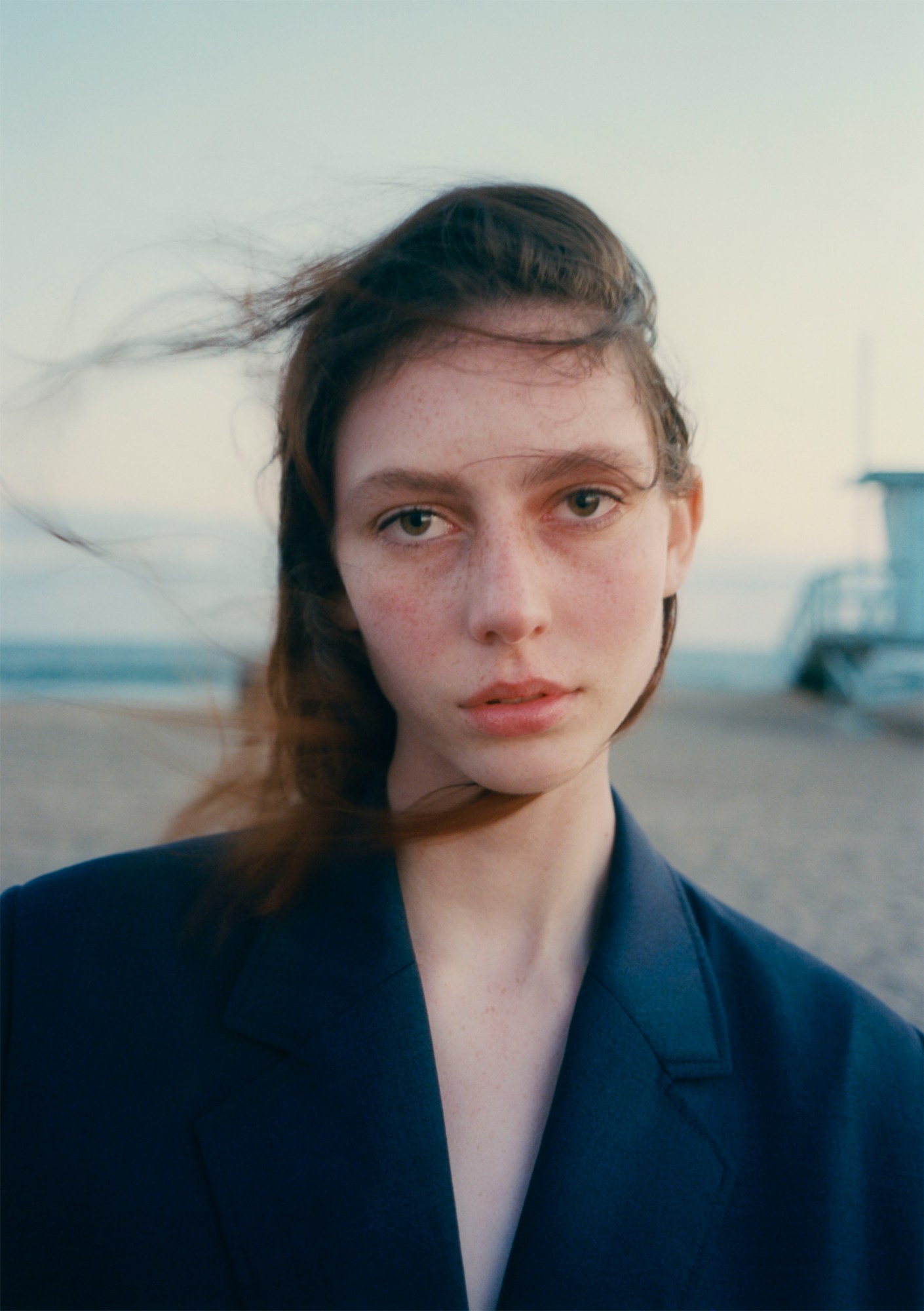
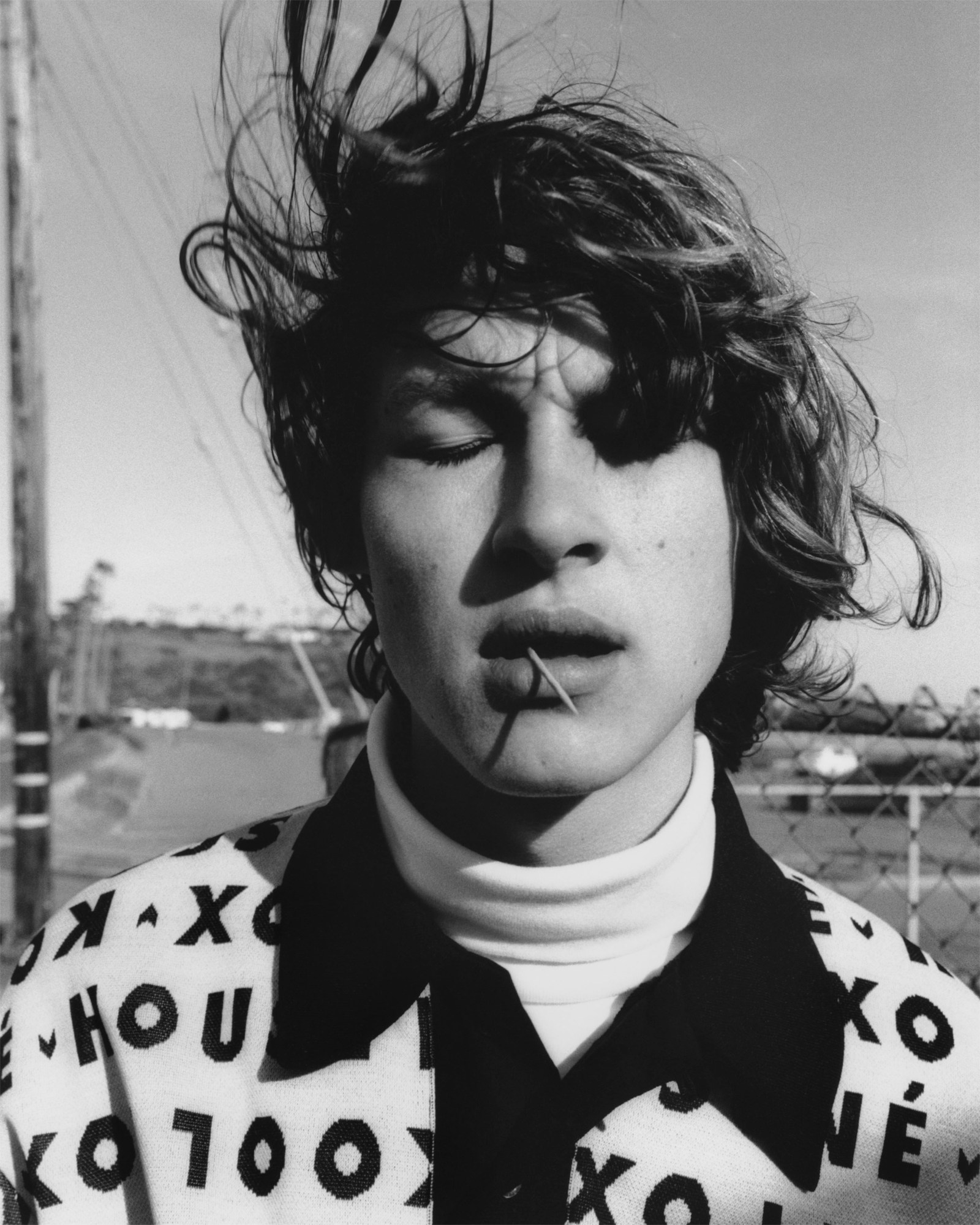
Yuni studied Fashion Design and Print at London’s Central Saint Martins. By her own admission she spoke to anyone and everyone she could through her studies; teachers, professors, students. “I met someone who knew Stella McCartney by chance,” she explains. “She was starting her own label in 2001, so I got introduced and ended up working there. That was my first job and it was the making of a brand. I was very involved in everything.” From there she went freelance — helping Phoebe Philo establish her new era of Celine — then joined Miu Miu to work with Miuccia Prada, before returning to Celine as Design Director in 2017. All of these designers have helped shape her creative process, one that she’s now applying in her new role. “With Stella, there’s definitely a similarity in terms of playfulness. Miuccia? She’s very intuitive, in soaking up the social situation and the way that she expresses that in a very concentrated way. That’s another thing I learnt. With Phoebe, I watched the way she pushed her ideas into different categories, and how vigorous that process is, and how she kept the idea of particular clients in mind, always.”
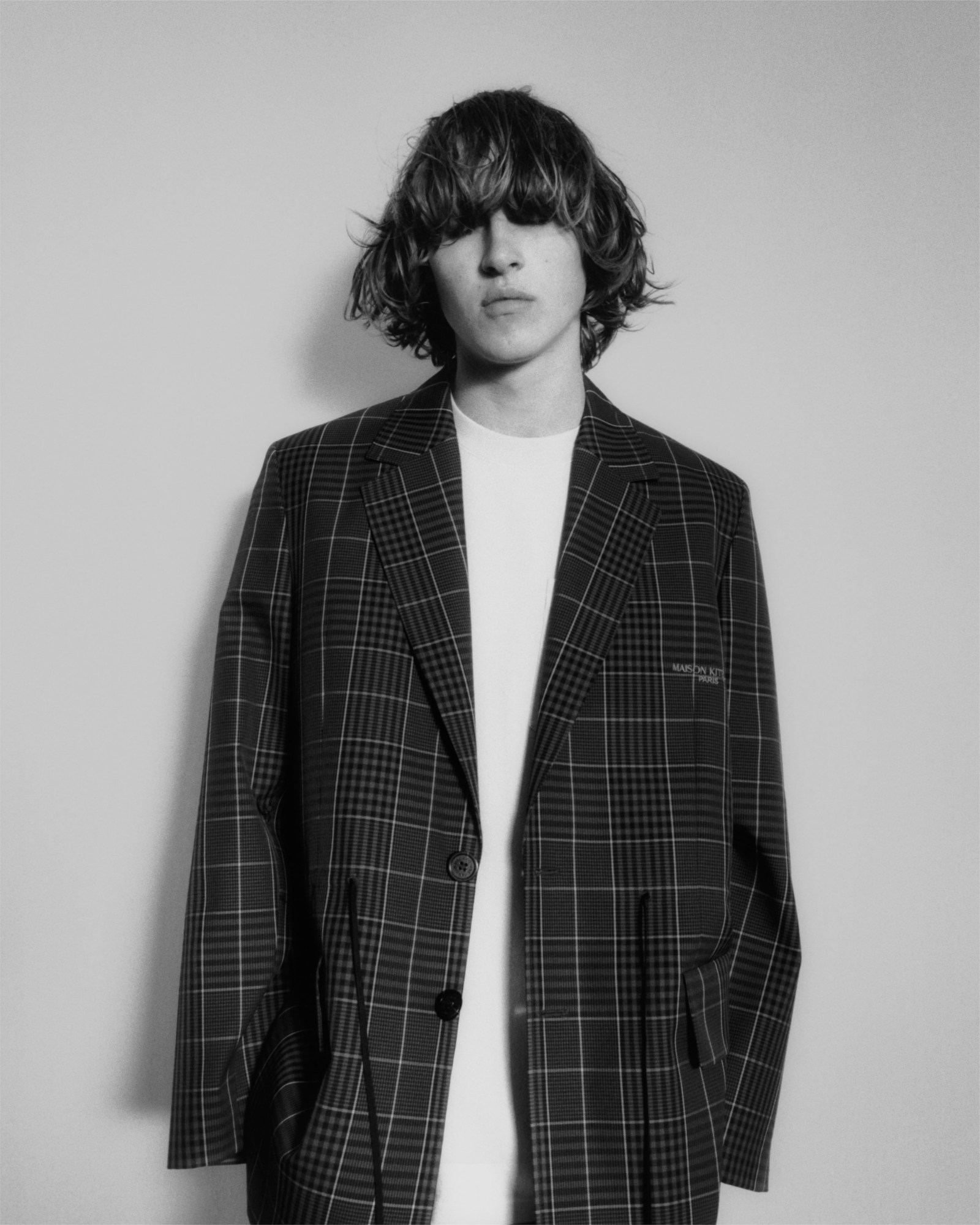
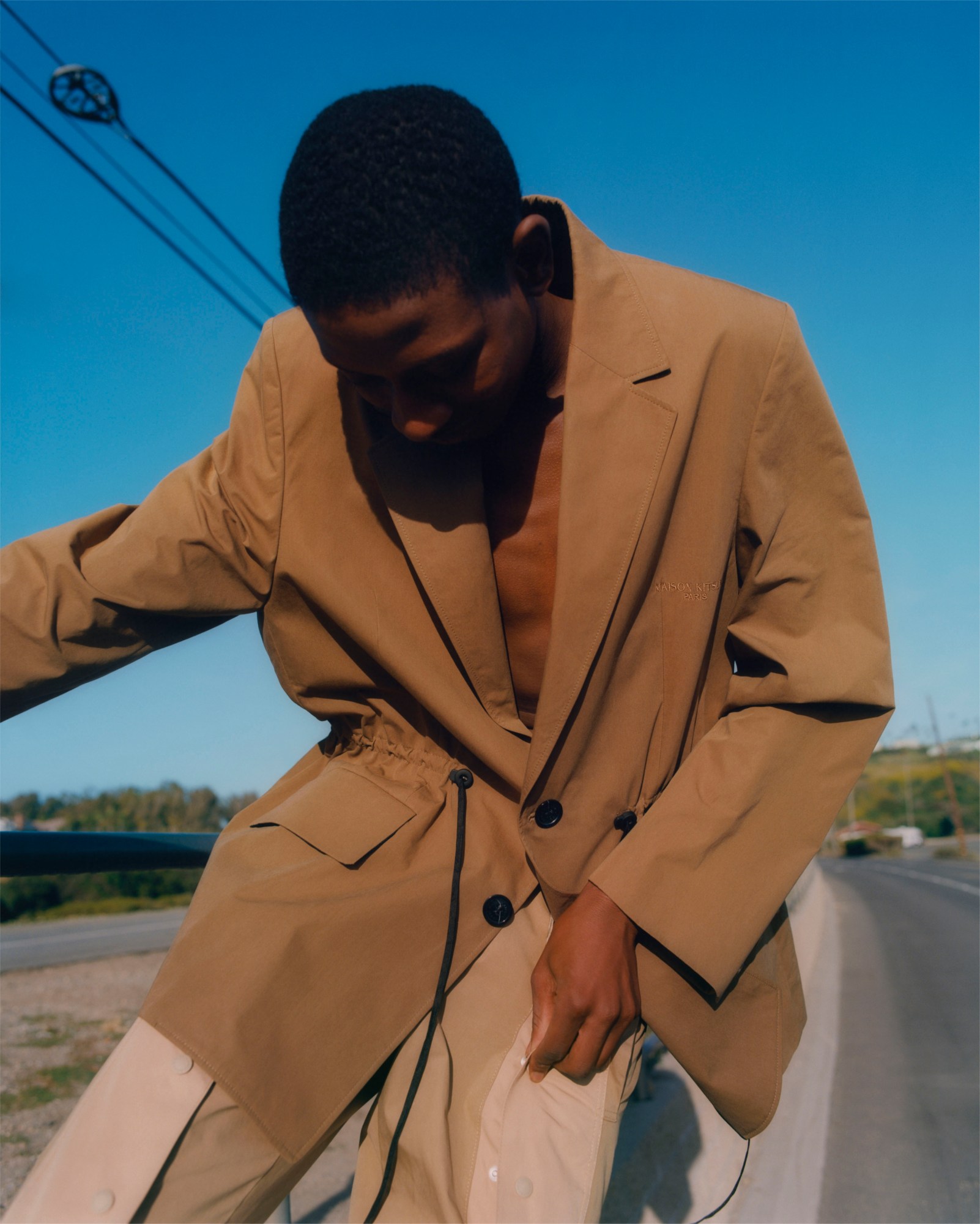
Despite knowing of the brand’s founders — Gildas Loaëc and Masaya Kuroki — for years, Yuni only got to know them personally relatively recently. “In the early 2000s I used to know of them before as DJs,” she says. More recently she had became a regular patron of the Café Kitsuné — the brand’s coffee shop in the gardens of the Palais Royal — thanks to its proximity to the Celine offices. “I used to go and get coffee. Slowly, time after time, we started chatting at the cafe… that’s how I got to meet them properly. I noticed there was a guy around who was sort of looking at me, and it turned out it was Gildas.”
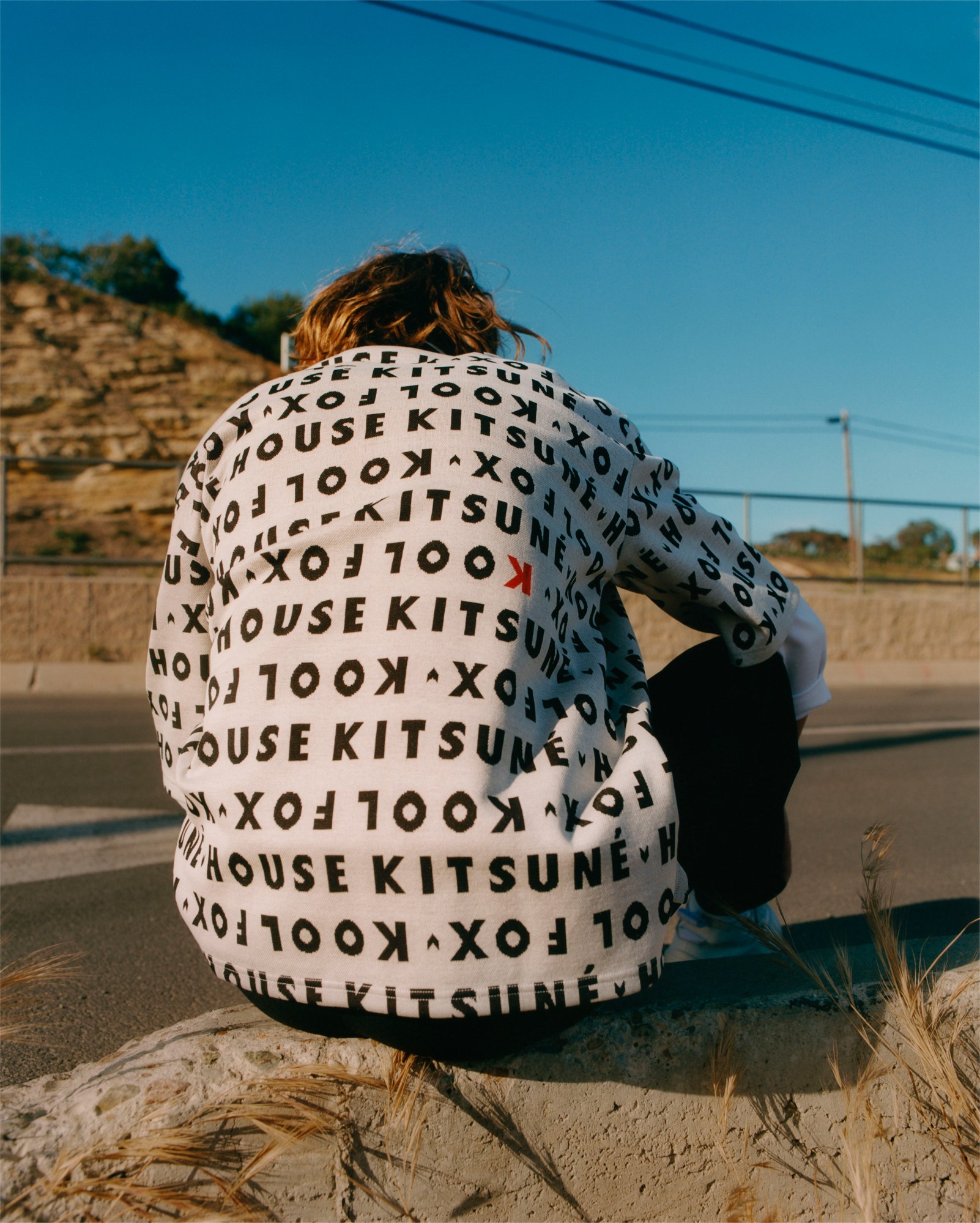
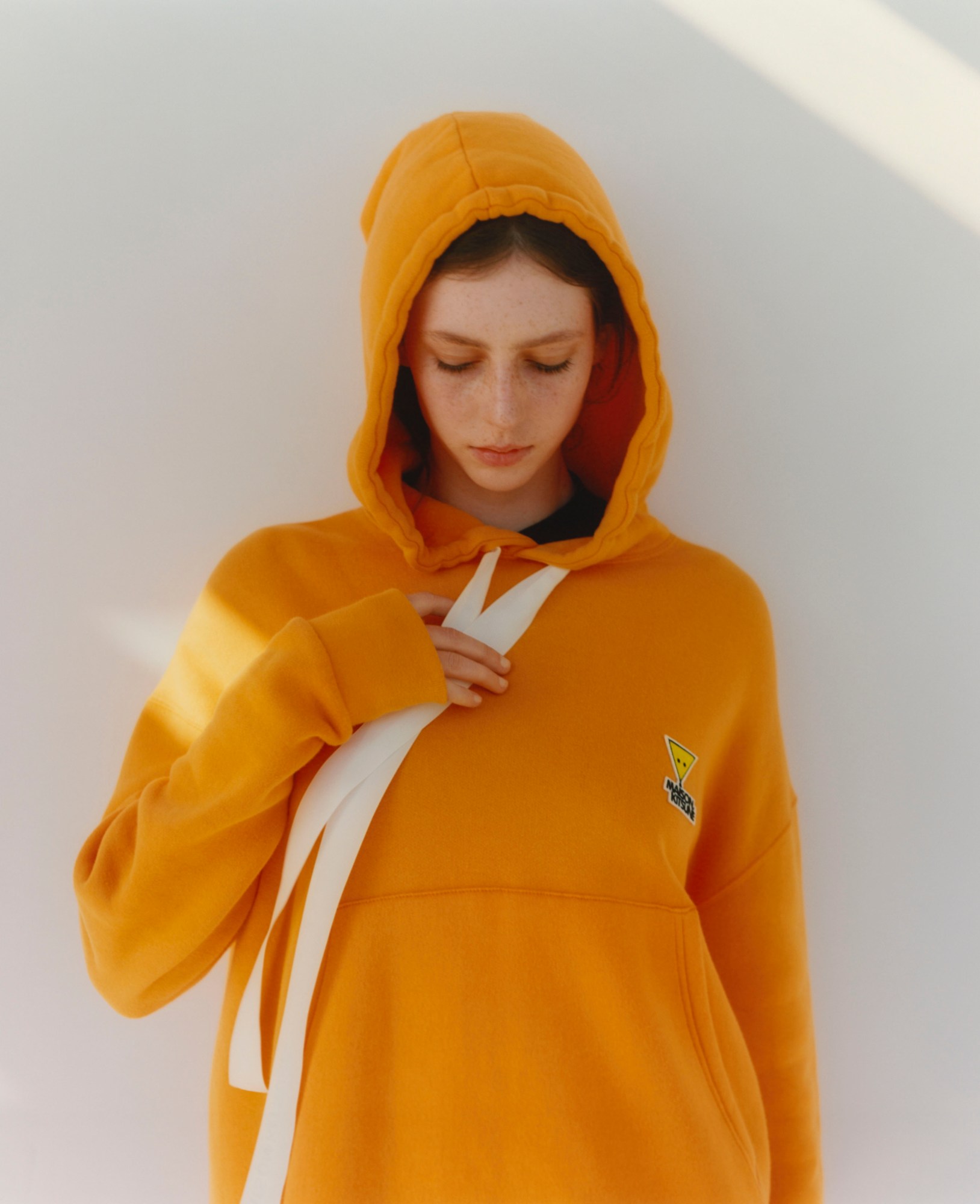
The pair bonded over a shared love of music, and eventually began discussing a creative partnership. In December 2018, it was announced she would take the creative lead on their fashion line. Inspired by house music of the 90s, over the past few months Yuni has built the foundations of a new era in the brand’s history. “Them being DJs and me, as a music lover and ex-musician… I thought it would be quite fun to play with a music element. So there were these great graphics that we applied, the logos, the little details.” The result, for autumn/winter 20, has all the hallmarks of classic Maison Kitsuné, with a new sensibility we suspect only an ex-Celine designer could conjure so effortlessly.
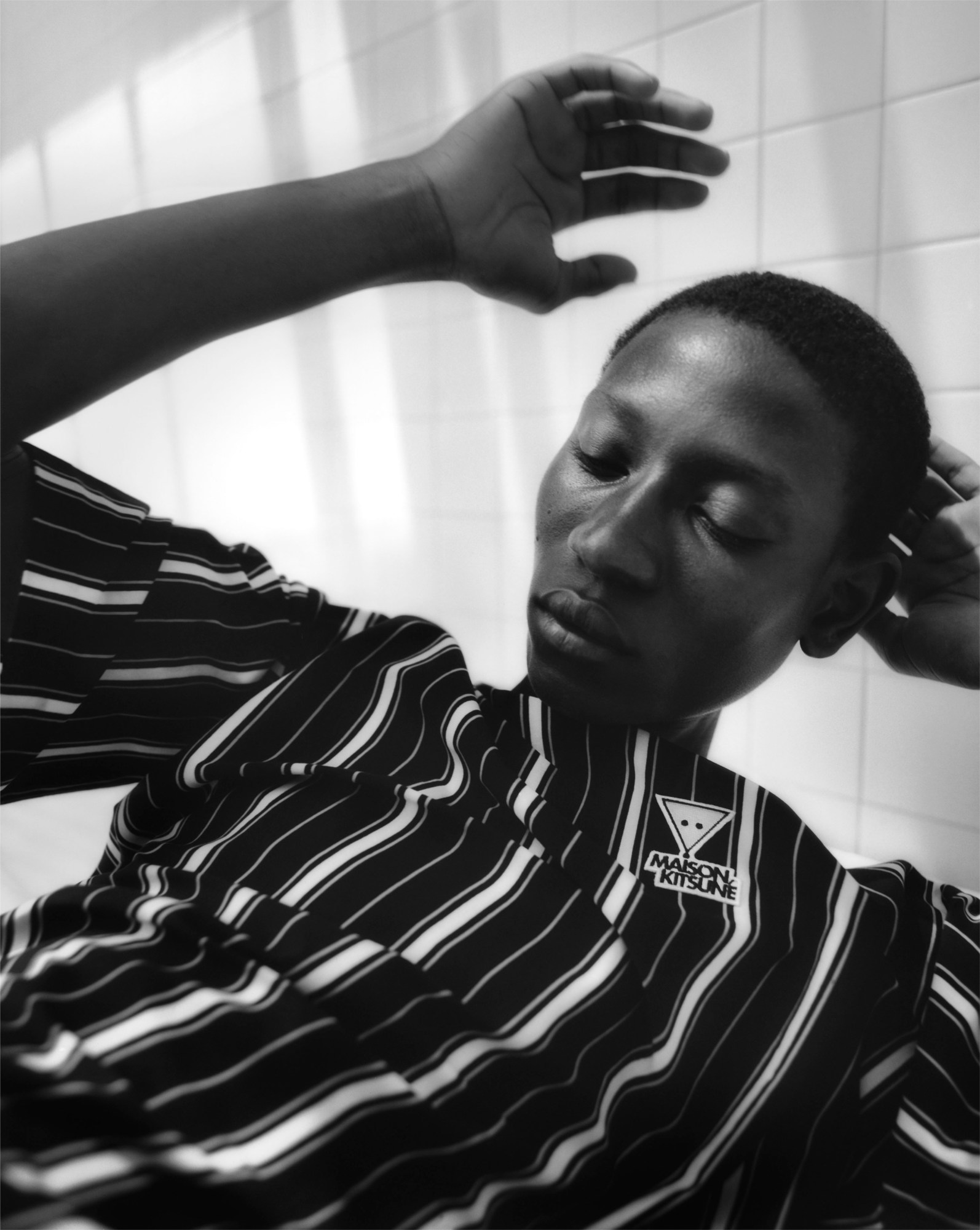
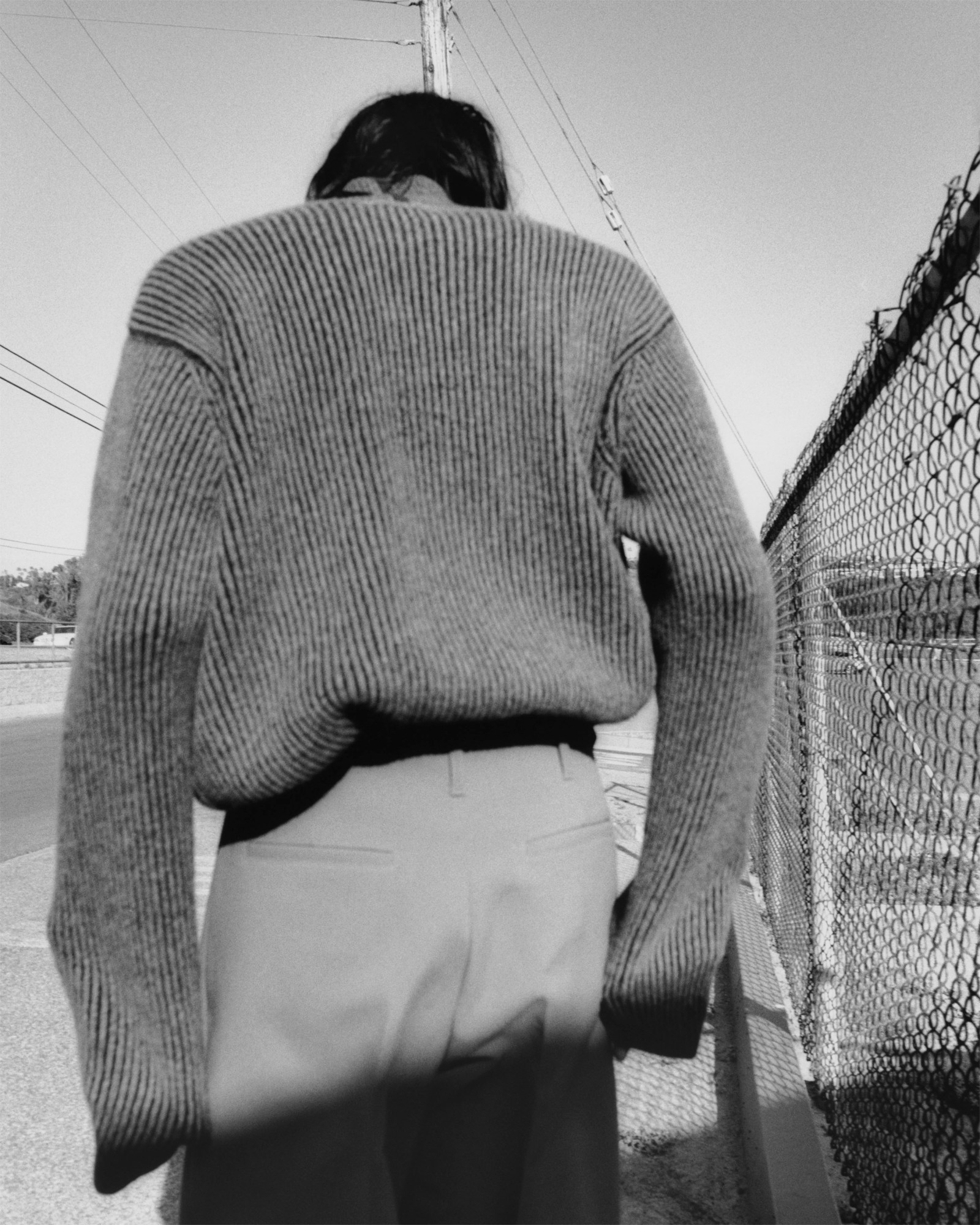
“When I go to a new brand, I try to take in as much information as possible to understand the history,” she says. “I established a visual moodboard, so we could establish a clear vision, for everyone, of what kind of people we design for. I took it very slowly, I did the moodboards… is it tailoring? Is it more sporty pieces? It’s important to establish the visual elements and working with the team. I tend to wear and see how things feel. Does it feel modern enough? Does it feel sharp enough? Does it feel relaxed enough?” If she could describe the aesthetic in a few words, it would be “Functional, urban and, to a point, genderless.” And, crucially, wearable. “The fact it’s a lifestyle brand, it’s not a fashion-fashion brand. That’s very unique and it’s great to embody.” With a new collection on the horizon, Yuni is keen to make sure that Maison Kitsuné becomes even more defined in the coming seasons. “I want to understand the history to continue progressing, in a way that is really clear to people what the world of Maison Kitsuné is,” she says. “And to be creatively open. It’s all about making sharp and wearable products.”
